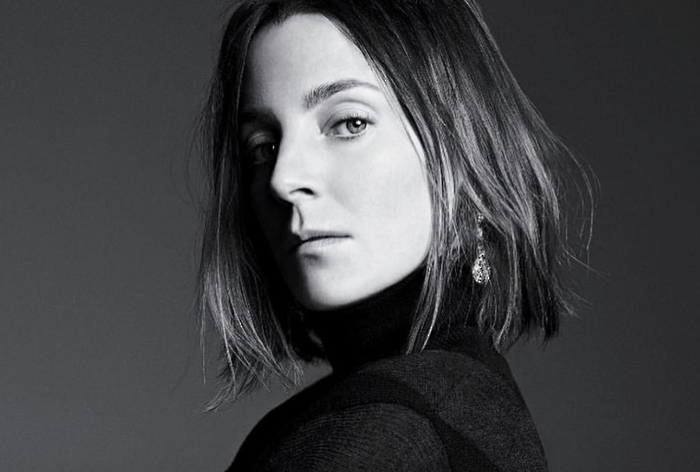Iranian designer Paria Farzaneh is changing the West’s perception of Iran through fashion
Alex Reeds discusses Iranian designer Paria Farzaneh, who uses her clothing to celebrate her heritage and change the West’s perception of Iran
Iran is a country that dominates the world’s front pages. Since the Iranian Revolution of 1979, the country has been viewed with increasing hostility in the West and branded a pariah state by many. Narratives of anti-semitism, accusations of supporting terrorist groups and instances of political oppression most often prevail in the Western media.
Most recently, the country attracted mainstream media attention yet again when nationwide protests erupted in late December 2017 and continued into the New Year. What began as rising discontent over high prices, low wages and rising unemployment, quickly evolved into demands for the country’s political and religious leaders to be removed from power. As the protests eventually fizzled out, leaving an estimated 23 protesters dead and Iranian jails packed to capacity, the question remains as to how we in the West should perceive Iran.
“The combination of hand-printed Iranian fabrics and traditional British tailoring underlies this emphasis on the fusion of cultures”
It is in the context of mounting political tensions that British-Iranian fashion designer, Paria Farzaneh, launched her AW18 collection at London Fashion Week. Farzaneh’s background as a Yorkshire-raised woman with Iranian heritage who works in London highlights the sense of diversity that she projects into her clothing. The rising fashion star gained substantial public exposure last year when Frank Ocean wore one of her t-shirts onstage at Lovebox Festival. However, she has distinguished herself chiefly thanks to her striking mix of Iranian and Western styles. Farzaneh’s SS18 collection was the perfect example of East-meets-West, as her fusion of London urban culture and Iranian traditions produced a unique aesthetic where British grime culture and the Middle East converged.
Her AW18 collection pointedly continues this articulation of Iranian identity with a dash of British zest. The combination of hand-printed Iranian fabrics and traditional British tailoring underlies this emphasis on the fusion of cultures. Based on the premise of Iranian workwear, Farzaneh experiments with the aesthetic of a host of professions, ranging from the military man to the officer worker.
However, the intricate patterns, Farsi script and bold colours are visible throughout the whole collection. The decision to launch her collection not on the runway at a glitzy London fashion show, but rather, in a quaint Iranian restaurant really emphasizes how Farzaneh really stands out among her contemporaries.
It is also significant that Farzaneh is exclusively a menswear designer. The premise of a woman dressing a man, especially in the context of deeply conservative Iran, is helping to challenge notions of masculinity and push boundaries even further in the fashion industry. Above all, Farzaneh is driven by changing perceptions and questioning established norms. She wants to create clothes for people who “don’t want to be like everyone else, and want to make a change.” Her unusual silhouettes and array of fabrics are encouraging beauty in individuality and openness, letting men express themselves through their clothing.
When asked about the ideology behind her work, Farzaneh replied, “the message isn’t so much political, it’s more to simply inform people about the culture – through the patterns, the prints, and colours – and let people know that the Middle East isn’t what most people believe it to be.” The West’s perception of the Middle East is definitely skewed, constantly portraying it as a chaotic, unsafe region. We are often too quick to judge a country that we know little about by its politics and leaders, rather than by its culture and ordinary people.
At a time when Iran is continually painted as a villain on the world stage, it has never been more important for Iranians to stand up and show the world that there is much more to their country than just the oppressive regime. The “Death to America” placards and anti-Israel rhetoric do not reflect the values of all Iranians, much like an obvious misrepresentation that all British citizens support Brexit.
Farzaneh continues to fight against Iran’s pariah status, asserting that “I guess the media will always change the way people see things, [but] I’m just trying to bring back the beauty to the West.” She uses her collection to show the beauty of Iran and emphasize that the policies of the country’s political and religious establishments should not affect how we perceive Iran’s cultural richness and artistic beauty. Farzaneh has undoubtedly helped to introduce a hitherto neglected region into a major creative industry, and the success of her work reinforces the need for the industry to continue to diversify and open up to different cultural traditions and aesthetics
 Features / Should I stay or should I go? Cambridge students and alumni reflect on how their memories stay with them15 December 2025
Features / Should I stay or should I go? Cambridge students and alumni reflect on how their memories stay with them15 December 2025 News / Cambridge study finds students learn better with notes than AI13 December 2025
News / Cambridge study finds students learn better with notes than AI13 December 2025 News / Dons warn PM about Vet School closure16 December 2025
News / Dons warn PM about Vet School closure16 December 2025 News / News In Brief: Michaelmas marriages, monogamous mammals, and messaging manipulation15 December 2025
News / News In Brief: Michaelmas marriages, monogamous mammals, and messaging manipulation15 December 2025 Comment / The magic of an eight-week term15 December 2025
Comment / The magic of an eight-week term15 December 2025









